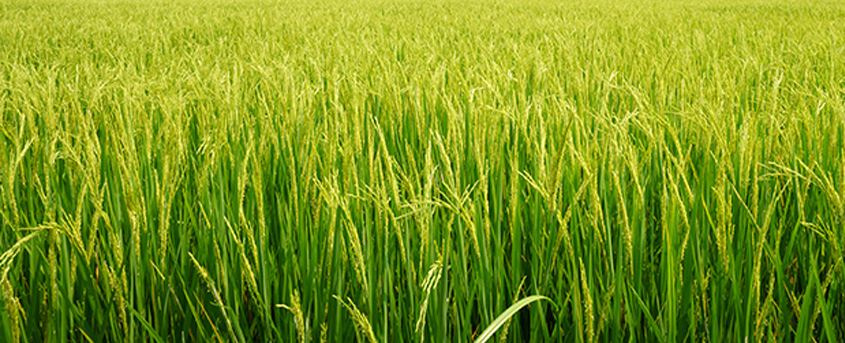There are several types of rice seeds that are cultivated in India. From white rice, parboiled rice, sticky rice, red rice, black rice to Basmati; Jasmine rice and several others. It is easy to find different varieties of rice in the paddy fields across the nation. They differ in grain sizes, yield as well as vigor. It is time to shift from all these varieties or farm saved seeds to hybrids. For it will boost production and higher yields will help to meet the demands of the ever-increasing population of the country.
What is hybrid rice?
Before we justify why hybrids are considered as the future of rice cultivation, we should understand what hybrid variety stands for. A hybrid is essentially a cross between two genetically distinct rice varieties. To produce a successful hybrid, you need a male sterile variety of rice with no viable pollen. In actuality, it is considered as a female variety since it accepts the pollen from another male variety. Secondly, you need a potent parent variety that has a normal reproduction system. It is referred to as the male parent who provides the pollen necessary for the cross to happen.
The superior quality parent seeds are identified and crossed by premier agro-scientists to produce hybrids that are of finer and more superior quality than its parent variety. Needless to mention that when farmers use right/superior hybrids, they’ll produce a crop that boasts of greater vigor and yield compared to crop grown using standard variety of seeds available in the market.
Advantages of Hybrid Rice:
Hybrid rice varieties have a plethora of advantages. You may already have an idea about some of their benefits. We’re listing the topmost benefits to give you a clear understanding:
- Excellent resistance to diseases, pests, & insects:
One of the biggest concerns of the farmers in the country is the vulnerability of their rice crops to diseases and insects. Chemical fertilizers, insecticides or pesticides are sprayed on the crops to protect them from these problems. However, the use of chemicals also has adverse effects. These are environmental pollution, loss of fertility in the soil and health complications in the end consumers. With hybrids, these problems are easily averted since they are built to be resistant to diseases as well as insects. - Increased Yield
This is one of the biggest advantages of hybrid rice varieties. They are produced in such a way that they simply increase the crop yield by manifolds than the natural varieties. It’s all because they are less susceptible to diseases and show the hybrid vigor. - Excellent Vigor
Vigor of the hybrids is much higher than its parent varieties. Thus, they have more strength to fight against weeds and rodents, which is a great relief for farmers.Presently different varieties of rice are cultivated in our country; it is high time we make the switch to hybrids from standard varietal local seeds. With a carefully planned shift from varietal seeds to hybrids, the yield power of rice can significantly improve. By shifting to hybrids, not only can farmers play a role in producing and supplying better quality of rice in domestic market but their living conditions can also improve greatly. It wouldn’t be an exaggeration to say that by shifting to hybrids we can play a vital role in strengthening India’s position in the world market further as the lead exporter of rice.
- Drought Tolerance
Drought is one of the most critical limitations in rice cultivation leading tohuge losses and limiting the yield increase of rice production.Hybrid ricecultivation yields better output under drought stressthan the traditional rice cultivation. To grow rice in water-limited environment, the need for a higher level of drought resistance and reduced yield loss by drought stress was felt. Eventually drought-resistance screening facility was established; evaluation standards were developed and Drought Resistant rice varieties were identified, developed and released to select farmers to be used in molecular mapping and breeding that bore encouraging results and higher yields.
![[Ankur Seeds] Ankur Seeds](https://ankurseeds.com/media/wp-content/themes/ankurseeds/images/ankur-seeds-logo.png)
